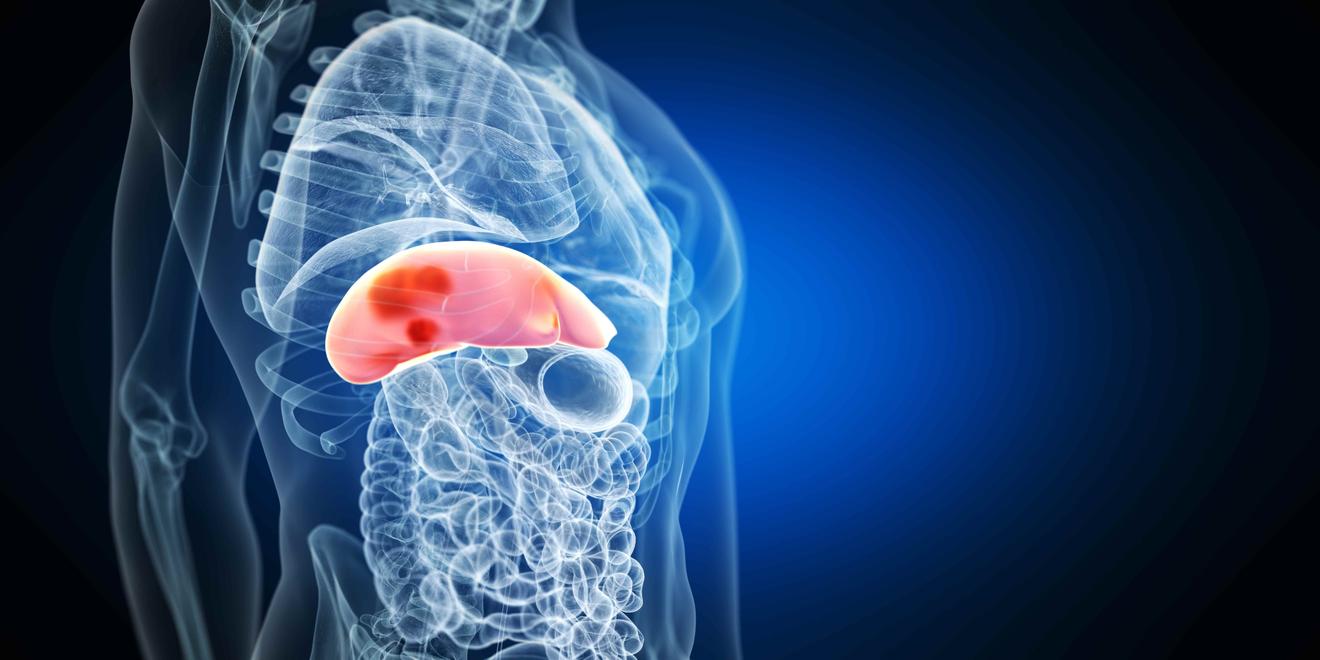Immunotherapy is a treatment that encourages the patient's own immune system to attack the cancer. As with many other types of cancer, immunotherapy is very effective for a number of patients with liver cancer. But unfortunately for 3 out of 4 patients with liver cancer the therapy has no effect: they would therefore benefit from being given a different therapy immediately. This also avoids the side effects and costs associated with immunotherapy.
Therefore, Leuven researchers from UZ/KU Leuven and the VIB went on a search to the deepest cellular level, hoping to find potential indications why immunotherapy works for one person and not for another. They examined both tumour tissue and blood samples of 44 patients with liver cancer. They also used single cell sequencing, a brand new technique that analyses and genetically reads individual cells one by one. For every cell in the tumour issue they checked which type of cell it was, to be able to completely unravel liver cancer and to determine on a cellular level whether the tumour is susceptible to immunotherapy or not.
The extremely detailed research led to a breakthrough: in a subclass of one of the immune cells they located a cell that is responsible for the correct reaction to immunotherapy. To confirm these findings, the doctors checked the tumour tissue of more than 250 patients with liver cancer that were given immunotherapy. For the patients with the new biomarker, immunotherapy was clearly a lot more effective.
It's once again proof of the importance of investing in the newest technologies to better understand cancer: at this current time, single cell technology is the only technique that can see specialised cell types on such a deep level. Prof. dr. Jeroen Dekervel
Prof. dr. Jeroen Dekervel
Prof. dr. Jeroen Dekervel, digestive oncologist at UZ Leuven: “Thanks to this discovery we know exactly which cells are responsible for the immunotherapy response: if those cells are ready in a patient's tumour, we know they will kick in with immunotherapy. If those cells are not there, the person concerned will not benefit from immunotherapy and we will be able to immediately chooses another treatment. It's once again proof of the importance of investing in the newest technologies to better understand cancer: at this current time, single cell technology is the only technique that can see specialised cell types on such a deep level.”
Follow-up study in Flemish hospitals
In the next study, researchers will look for an easier and cheaper technique to detect this specific biomarker in patients. Because it is unfeasable to use single cell technology for every patient. Thanks to single cell technology doctors know which proteins the important cells secrete. These proteins they can find with a classic test via colouring of the tissue. A new study is currently in the pipeline in which the biomarker will be tested at several Flemish hospitals.
Prof. dr. Jeroen Dekervel: “The scientific question has been answered, but now we need to find a way to bring the test into the clinical practice. Single cell technology is too expensive and labour intensive to deploy on a large scale. Moreover, to investigate at such a deep cellular level, you need a piece of cancer tissue to be processed immediately after taking it. Now that we have first extensively examined which cells are responsible for the immune response, we will look for an easier technique to retrieve them. The need for this is high, as it will dramatically increase the chances of a better outcome for patients with liver cancer.”
The study was published in Nature Communications and is part of the doctoral project of dr. Sarah Cappuyns. it is a collaboration between the UZ Leuven clinical team caring for patients with liver cancer and the lab for Translational Genetics of prof. Diether Lambrechts (VIB/KU Leuven). In recent years, doctors have seen a clear worldwide increase in the number of patients with liver cancer. In a few years' time, the disease will be the third most frequent cause of death as a result of cancer.
Read the publication here
More about liver cancer at UZ Leuven: https://www.uzleuven.be/nl/leverkanker
